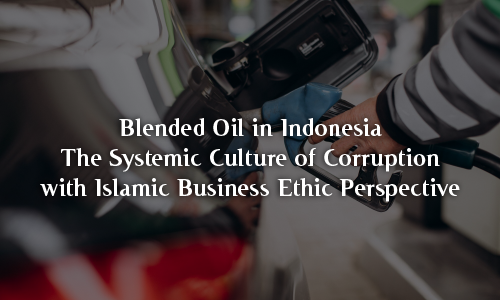
Summary: The fuel adulteration case involving Riva Siahaan, President Director of Pertamina Patra Niaga, underscores the entrenched corruption within Indonesia’s corporate sector, particularly in state-owned enterprises (BUMN). This malpractice, which has reportedly resulted in economic losses amounting to IDR 193 trillion, reflects a broader structural issue characterized by collusion, nepotism, and regulatory exploitation, ultimately compromising corporate governance and economic stability. The institutionalization of unethical business practices is paralleled by political irregularities, such as the contentious amendment of electoral regulations, indicating systemic deficiencies in ensuring transparency and accountability. Despite the existence of legal frameworks designed to combat corruption, ineffective enforcement mechanisms allow corporate misconduct to persist, thereby diminishing public trust in both governmental and business institutions. From the standpoint of Islamic business ethics, adherence to fundamental principles such as justice (‘adl), honesty (ṣidq), and accountability (amanah) is essential for fostering ethical corporate conduct. Addressing these challenges necessitates comprehensive regulatory reforms, stringent legal enforcement, and a commitment to cultivating a governance culture centered on integrity, thereby safeguarding economic and social welfare.
A Culture of Corruption in Indonesia
Corruption constitutes a critical impediment to corporate governance, economic stability, and public trust, manifesting through unethical activities such as bribery, nepotism, fraud, and regulatory misconduct. These practices frequently become entrenched within both public and private sectors, posing systemic challenges to institutional integrity. In the Indonesian context, cases like the fuel adulteration scandal involving Pertamina Patra Niaga underscore the extensive economic repercussions of corporate malpractice and the consequent erosion of confidence in state-owned enterprises. Despite the presence of legal frameworks designed to counteract corruption, deficiencies in enforcement mechanisms have facilitated the persistence of these unethical behaviors. Addressing corruption effectively requires a comprehensive strategy encompassing stringent regulatory oversight, the implementation of transparent governance structures, and the institutionalization of ethical business conduct grounded in the principles of justice,…

















